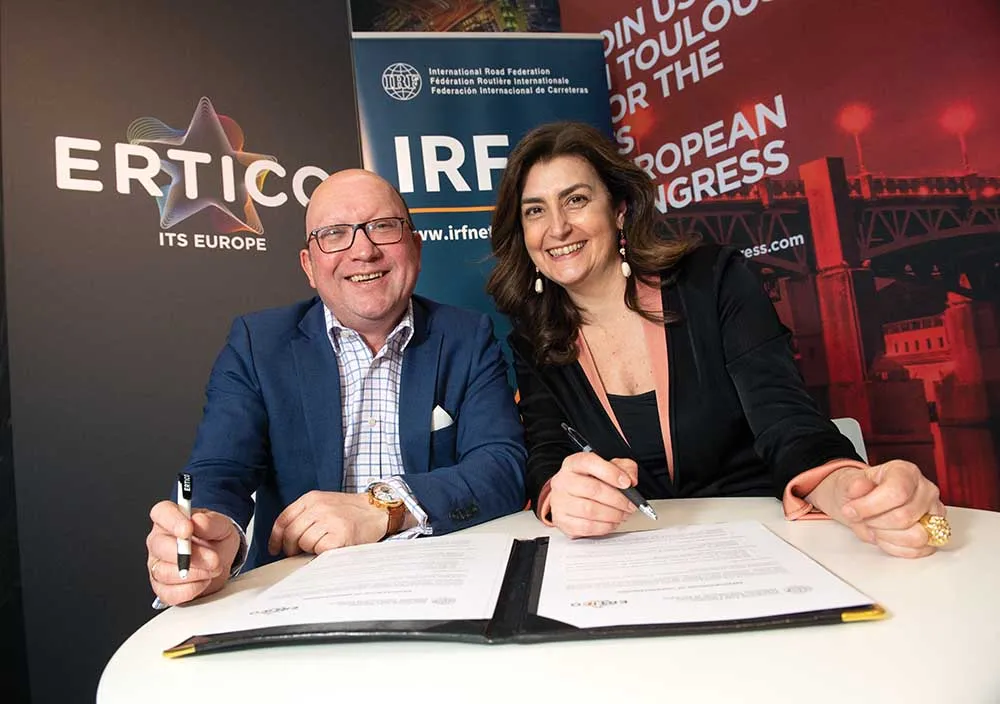According to Ertico, the future of traffic management on urban and inter-urban networks will rely on direct communication and interaction between vehicles and the infrastructure, using new technologies called cooperative intelligent transport systems (C-ITS) that support real-time exchange of traffic data. This cooperation can enable a wide range of applications such as vehicle-sourced data collection, green light and speed advice, automated hazard detection, selective vehicle priority, dynamic city logisti
December 5, 2012
Read time: 2 mins
According to 374 Ertico, the future of traffic management on urban and inter-urban networks will rely on direct communication and interaction between vehicles and the infrastructure, using new technologies called cooperative intelligent transport systems (C-ITS) that support real-time exchange of traffic data. This cooperation can enable a wide range of applications such as vehicle-sourced data collection, green light and speed advice, automated hazard detection, selective vehicle priority, dynamic city logistics, parking management, virtual signage and multimodal traveller information.
The potential benefits of cooperative ITS are vast, including improved energy efficiency, reduced CO2 emissions and congestion, more effective incident detection and management, and increased road safety. Individual transport users will enjoy easier, more reliable and eco-friendlier travel choices, fleet operators for logistics and public transport will improve quality and cost-effectiveness of services while traffic and road managers will benefit from more complete and timely monitoring of their network, and better tools for traffic control and system-wide optimisation.
At the 19th6456 ITS World Congress in Vienna six infrastructure suppliers announced their collaboration towards a common set of standards for cooperative mobility services, which are expected to be implemented in their future products. The statement, signed by Ertico partners Imtech Traffic and Infra, 108 Q-Free, 189 Siemens, 129 Swarco, Vialis and 4186 Xerox as part of an Ertico-ITS Europe initiative to speed up deployment, is a demonstration of their commitment to work together for cooperative mobility.
The1690 European Commission has issued mandate M453 to European industry and governments to develop a minimum set of standards needed to ensure the functionality and interoperability of these new communication technologies, and enable connected vehicles to communicate intelligently with traffic management and control infrastructure throughout Europe.
This mandate is directed to the6613 European Telecommunications Standards Institute (ETSI) and the European Standards Committee (1701 CEN), that between them have already published many of the required standards.
Completion of these standards will open the way for a harmonised pan-European deployment of C-ITS, enabling cooperative intelligent roadside systems to communicate with equipped cars, trucks, emergency services and public transport vehicles.
Through their joint statement the infrastructure suppliers invite public authorities at national, regional and city levels to work with them to ensure that the respective products and services fulfill their needs and goals concerning interoperability and functionality.
The potential benefits of cooperative ITS are vast, including improved energy efficiency, reduced CO2 emissions and congestion, more effective incident detection and management, and increased road safety. Individual transport users will enjoy easier, more reliable and eco-friendlier travel choices, fleet operators for logistics and public transport will improve quality and cost-effectiveness of services while traffic and road managers will benefit from more complete and timely monitoring of their network, and better tools for traffic control and system-wide optimisation.
At the 19th
The
This mandate is directed to the
Completion of these standards will open the way for a harmonised pan-European deployment of C-ITS, enabling cooperative intelligent roadside systems to communicate with equipped cars, trucks, emergency services and public transport vehicles.
Through their joint statement the infrastructure suppliers invite public authorities at national, regional and city levels to work with them to ensure that the respective products and services fulfill their needs and goals concerning interoperability and functionality.







